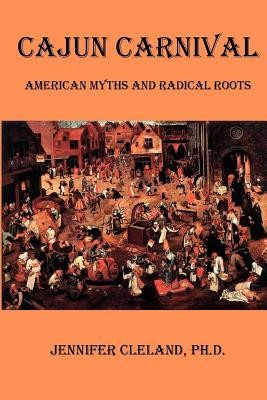
- We will send in 10–14 business days.
- Author: Jennifer Cleland
- Publisher: CreateSpace Independent Publishing Platform
- Year: 2012
- Pages: 224
- ISBN-10: 147503704X
- ISBN-13: 9781475037043
- Format: 15.2 x 22.9 x 1.2 cm, softcover
- Language: English
- SAVE -10% with code: EXTRA
Reviews
Description
Questions of purity and authenticity haunt the broader discipline of cultural studies. The subjects of cultural studies in general are inevitably products of the interaction between their inherited ethnic traditions and the modern culture. Popular culture, in contrast, consists of traditions that develop from the bottom up in a society; this work concerns issues of the representation of popular culture by the official culture, and the social tensions that are revealed through popular festive forms. Cajuns gathered in southwestern Louisiana in the mid-eighteenth century after the British deported them from their settlements in what is now New Brunswick, Canada. Their history, whether in Canada or in Louisiana, is shaped by their American experience, their encounter with the wilderness around them and its diverse population. The wonderful blend that is Cajun culture, and its by-products, music and cuisine, are now mainstays of American cultural tourism, marketed far away from Louisiana. Yet the image they market is itself an American myth of their own making. Cajun culture originated in early modern France, and their Mardi Gras celebration is similar to the youth group quêting of that time. Festive customs metamorphosed as the population moved from rural villages to urban centers, leading to a loss of individual autonomy in general, but especially for women, whose legal and property rights were abrogated during this period. As society became more hierarchized, gender and class role-reversals became more prevalent themes of festive behavior. The popular justice that was an important function of youth groups in the villages provided a model for the reassertion of traditional rights and privileges that accompanied the expanding power of the central government in France. François Rabelais used carnival and festive imagery to question the society of his day in a literary manifestation of carnival excess and role-play. Critics have seen him as misogynist, but a topsy-turvy reading, truer to his carnivalesque spirit, reveals his interrogation of the official meanings of his day, and thus invites multiple interpretations of his narratives.
- Author: Jennifer Cleland
- Publisher: CreateSpace Independent Publishing Platform
- Year: 2012
- Pages: 224
- ISBN-10: 147503704X
- ISBN-13: 9781475037043
- Format: 15.2 x 22.9 x 1.2 cm, softcover
- Language: English English
Questions of purity and authenticity haunt the broader discipline of cultural studies. The subjects of cultural studies in general are inevitably products of the interaction between their inherited ethnic traditions and the modern culture. Popular culture, in contrast, consists of traditions that develop from the bottom up in a society; this work concerns issues of the representation of popular culture by the official culture, and the social tensions that are revealed through popular festive forms. Cajuns gathered in southwestern Louisiana in the mid-eighteenth century after the British deported them from their settlements in what is now New Brunswick, Canada. Their history, whether in Canada or in Louisiana, is shaped by their American experience, their encounter with the wilderness around them and its diverse population. The wonderful blend that is Cajun culture, and its by-products, music and cuisine, are now mainstays of American cultural tourism, marketed far away from Louisiana. Yet the image they market is itself an American myth of their own making. Cajun culture originated in early modern France, and their Mardi Gras celebration is similar to the youth group quêting of that time. Festive customs metamorphosed as the population moved from rural villages to urban centers, leading to a loss of individual autonomy in general, but especially for women, whose legal and property rights were abrogated during this period. As society became more hierarchized, gender and class role-reversals became more prevalent themes of festive behavior. The popular justice that was an important function of youth groups in the villages provided a model for the reassertion of traditional rights and privileges that accompanied the expanding power of the central government in France. François Rabelais used carnival and festive imagery to question the society of his day in a literary manifestation of carnival excess and role-play. Critics have seen him as misogynist, but a topsy-turvy reading, truer to his carnivalesque spirit, reveals his interrogation of the official meanings of his day, and thus invites multiple interpretations of his narratives.


Reviews